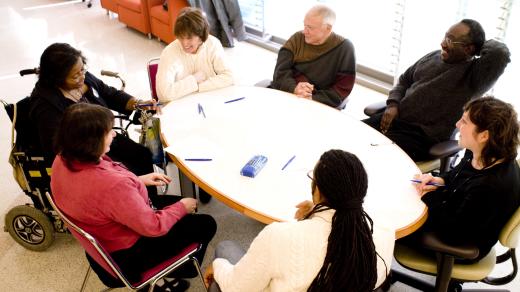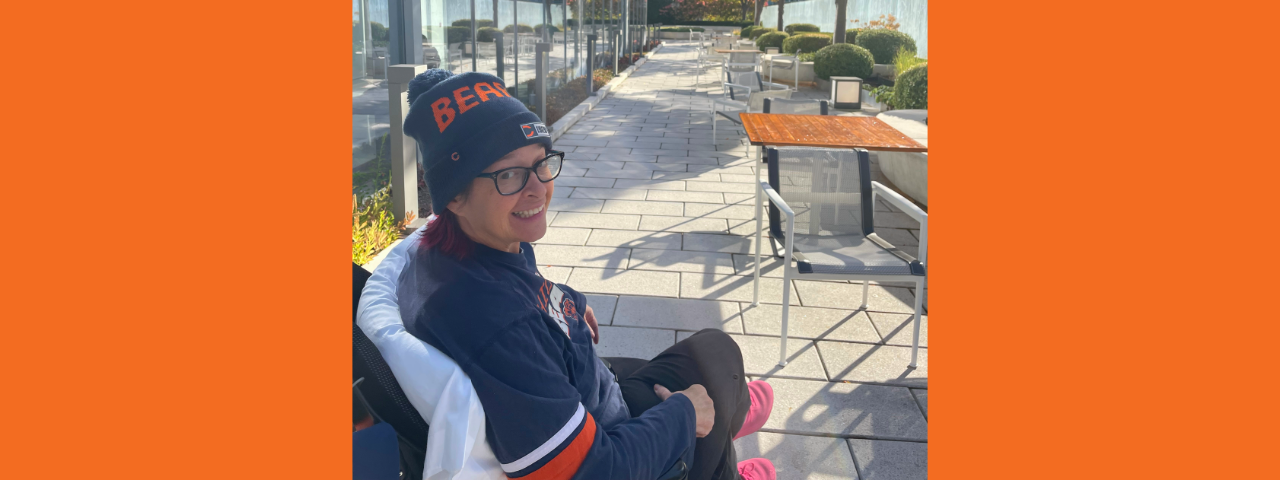Body
The word is on the tip of your tongue … but you can’t get it out. Now imagine struggling with that challenge every day in every conversation you have.
Picture someone speaking English, but this is what you hear.
Leora Cherney, PhD, RIC Director for Aphasia Research and Treatment: “We don’t just mean a problem with speaking. We mean a problem with understanding language, expressing language, reading, writing, even math.”
Body
It's not something you can see, but listen as Ashley Nagy tries to find the right words. At times her husband Matt helps prompt her responses.
Ashley Nagy, aphasia patient: “Having to talk more …”
Matt Nagy, Ashley’s husband: “In the beginning it was difficult to communicate. Did you feel like you had the words but just couldn’t get them out?”
Ashley Nagy: “Yeah. It’s very frustrating, very frustrating.”
It’s called aphasia. The most common cause is stroke, particularly those that occur in the left side -- the language center of the brain. Just one month after giving birth to a beautiful baby girl, Ashley had two strokes following surgery to remove a tumor near her optic nerve.
Ashley Nagy: “I definitely want to talk to my daughter.”
Matt Nagy: “The beginning was very difficult. After she had her stroke she struggled to understand what we were telling her. She couldn’t verbalize anything. You could say, ‘Point to the clock, point to the TV, point to your nose. She wasn’t able to.”
But there has been progress … much of it the result of the Intensive Comprehensive Aphasia Program (ICAP) at the Rehabilitation Institute of Chicago.
Leora Cherney: “We train family members and friends how to help facilitate conversations by writing an initial letter of a word and or perhaps saying the first sound of a word to perhaps get to the word they are looking for.”
The training is seven hours a day, five days a week … repetitive practice to help participants initiate and maintain conversations. The program lasts one month – but the strategies learned will help Ashley carry on in her everyday life.
Matt Nagy: “One big goal you have is to go back to work.”
Ashely Nagy: “Yes, I want to be able to go to work.”
Matt Nagy: “You want to tell them what work you did before you had the stroke?”
Ashley Nagy: “I was a physical therapist.”
Matt Nagy: “Seems like every day and every week she’s improving more and more.”
Aphasia occurs in about 25 to 30 percent of stroke patients. And as we saw in the RIC program – many are younger adults. In fact, stroke rates are up nearly 44 percent among people 25 to 44 years old.
See a video of Ashley's story at WGN-TV. Media inquiries for the AbilityLab can be directed to Megan Washburn at mwashburn@sralab.org.



